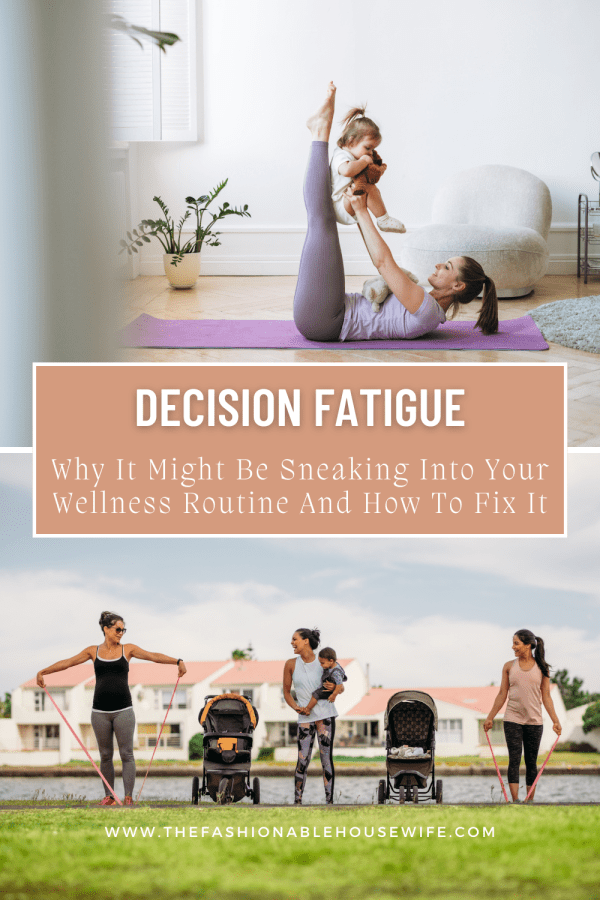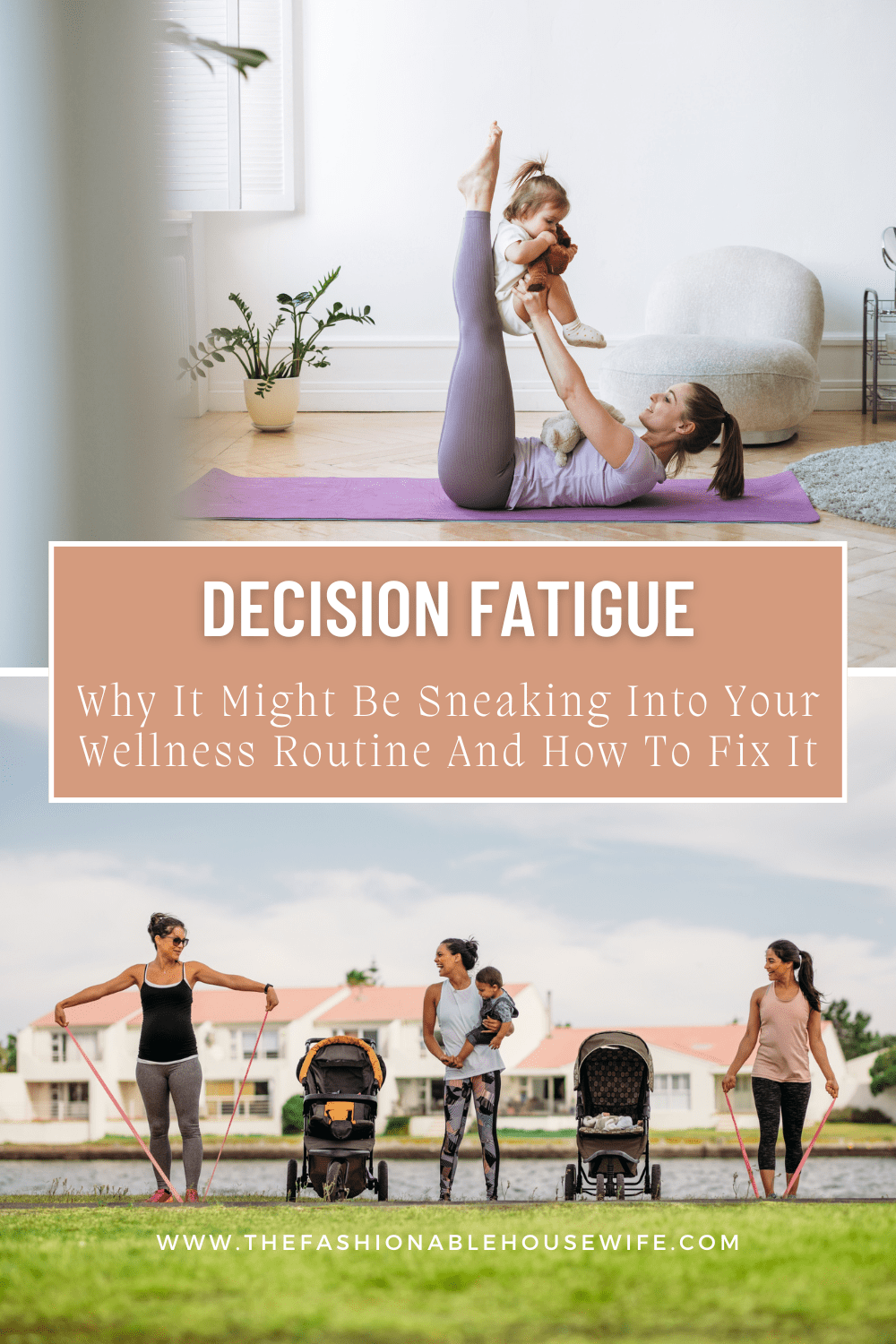Why Decision Fatigue Might Be Sneaking Into Your Wellness Routine

Some days, wellness habits feel easy—meals come together without much thought, you know when you’re moving your body, and your evening routine just flows. Other days, even small decisions feel overwhelming. You might find yourself putting off simple things like stretching, planning meals, or even filling your water bottle. It’s not always a lack of motivation. Sometimes, it’s something else entirely: decision fatigue. When you’re constantly making small choices throughout the day, even your wellness routine can start to feel harder than it should. This is especially common for people who are neurodivergent and have been diagnosed with autism and ADHD.
This article explores how to reduce decision fatigue and why it can show up in your day-to-day life, especially within your wellness habits. You’ll also find simple strategies to reduce decision-making pressure and bring more ease into your routine.
What Is Decision Fatigue and Why Does It Matter
Decision fatigue refers to the mental exhaustion that comes from making too many choices. It doesn’t only happen with major decisions—small, repeated choices throughout the day can also drain your mental energy.
In the context of wellness, this might look like asking yourself:
- What should I eat for lunch?
- Should I go for a walk or rest?
- Is it too late to stretch?
- Do I have time to prepare a balanced dinner?
Each of these questions might seem minor on their own, but over time, they add up. The more decisions you need to make, the harder it becomes to follow through—even on habits that usually feel manageable.
One way some people reduce daily decision-making is by creating structure around their wellness choices. For example, using consistent tools or products can help simplify routines.
Some individuals choose to include wellness-focused products from USANA Health Sciences in their daily habits. USANA offers research-supported supplements that are often used as part of a consistent routine. When routines feel streamlined, it may feel easier to maintain wellness habits without overthinking each step.
The key is not to eliminate decision-making altogether but to create systems that reduce decision fatigue and the need for constant choices.

Signs Decision Fatigue Might Be Affecting Your Wellness Habits
It’s not always obvious when decision fatigue shows up. In wellness routines, it often hides behind common struggles that are easy to overlook.
Here are a few signs it might be sneaking in:
- You skip meals not because you’re not hungry, but because you can’t decide what to eat.
- You avoid movement or rest because you’re unsure what your body needs.
- You feel mentally drained when thinking about wellness planning, like meal prepping or organizing supplements.
- You overthink simple actions, such as choosing a recipe or deciding whether to follow through on your routine.
These aren’t signs of laziness or failure. They’re signs that your mental energy might be stretched thin from too many decisions. When you notice these patterns, it’s a good time to check in and adjust how your routine is set up.
How to Simplify Your Wellness Routine Without Losing Flexibility
Simplifying your wellness habits doesn’t mean giving up variety or freedom. It means reducing the number of daily decisions you need to make in order to stay consistent.
One helpful strategy is to create a set of default choices. That might include:
- A short list of go-to meals you enjoy and can prepare quickly
- A movement routine that you can do in under 15 minutes
- A simple evening routine with just two or three steps
When you already have a few decisions made ahead of time, you don’t have to rely on mental energy in the moment. This makes it easier to stick with your habits, especially on busier days and allows you to reduce decision fatigue.
If you include supplements in your routine, placing them somewhere visible or pairing them with another habit (like your morning drink) can make them part of your natural flow—no extra thought required.
These small shifts help build a routine that feels accessible rather than exhausting.
Why Systems Support You More Than Willpower
Willpower works in short bursts, but it’s not meant to carry your entire routine. When decision fatigue shows up, willpower tends to fade fast. That’s where systems come in.
Systems help you act without having to overthink. This might look like:
- Keeping a planner with a simple weekly outline
- Preparing ingredients or meals in advance
- Setting gentle reminders throughout the day
- Having wellness tools organized and ready to use
When your wellness routine is supported by systems, you don’t need to make a choice every time. You already know what’s next.
These systems don’t need to be strict or complex. In fact, the simpler they are, the more helpful they tend to be. You’re not locking yourself into a rigid plan—you’re just making it easier to follow through.

Small Ways to Reset When Your Routine Feels Overwhelming
Sometimes, even your best systems need a reset. If your routine starts to feel like too much, it’s okay to pause.
Here are a few ways to reset without starting from scratch:
- Choose one or two habits to focus on for the next few days
- Let go of things that don’t feel supportive right now
- Return to a few “fallback” meals or movements that don’t require planning
- Give yourself permission to rest without guilt
- Make sure you are getting deep sleep every night.
Ask yourself: What feels manageable right now? That question alone can help reduce pressure and bring you back to a place of ease. Routines are meant to support you, not exhaust you. Taking a break from decision-making doesn’t mean you’re giving up on wellness. It just means you’re creating space to return to it in a more supportive way.
Wellness doesn’t need to be complicated, but it can start to feel that way when decision fatigue sneaks in. If you’ve found yourself overthinking small choices or skipping habits that normally feel easy, you’re not alone.
By simplifying your routine, creating low-effort systems, and giving yourself permission to reset when needed, you can reduce the number of daily decisions you have to make. Over time, these small adjustments can make your wellness habits feel more natural—and less like another list of things to manage.
The more you reduce decision fatigue and pressure from your wellness routine, the more room you create for habits that actually feel good to follow.

